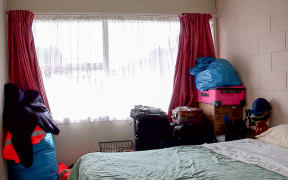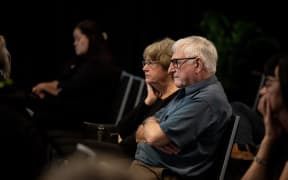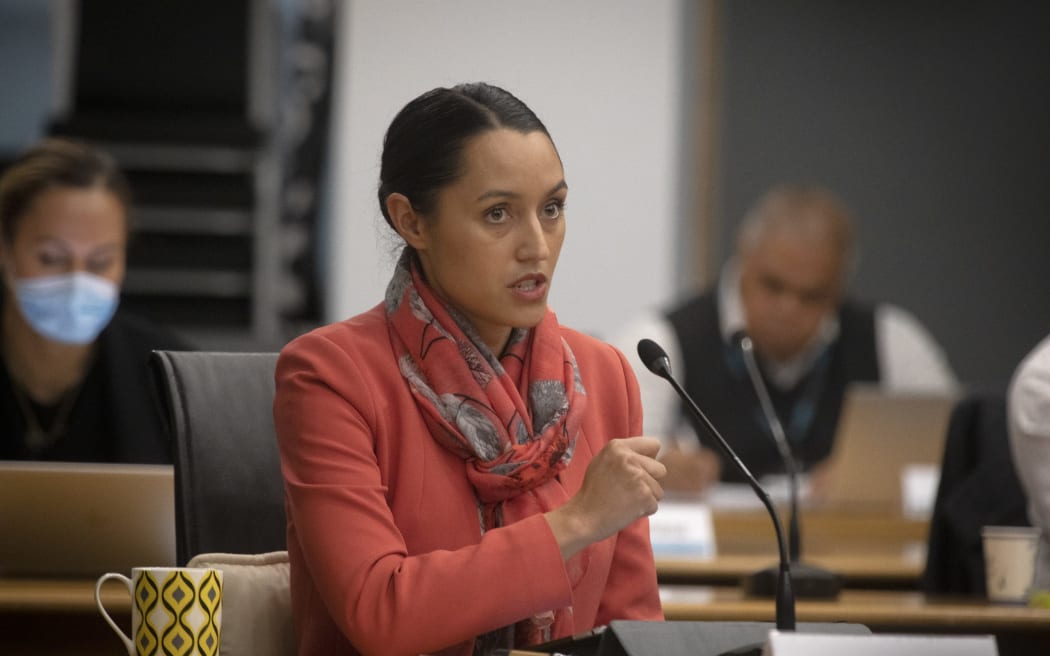
Rotorua mayor Tania Tapsell said the council would consider on Thursday whether or not to commit to moving ahead with the Rotorua Housing Accord. Photo: Rotorua Daily Post / Andrew Warner
Rotorua Lakes Council will consider an agreement that could see an end to the widespread use of emergency housing in motels in the city.
It comes as the council released its agenda for its meeting on Thursday this week, with an item to be discussed in a public-excluded section titled "Rotorua Housing Accord".
On Tuesday, Rotorua mayor Tania Tapsell told Local Democracy Reporting the discussion would be confidential as negotiations with the government were ongoing.

She said after the council's discussions on Thursday, it would either commit - or not - to "moving forward with this housing accord together" and would await any further changes from Housing Minister Megan Woods.
In their first meeting in October, Tapsell said she and Woods had agreed the current emergency housing situation in Rotorua was "unacceptable" and required "urgent change", but they had also agreed it would not be achievable without working together.
"I've been really clear and consistent that we do need to see an end of mixed use [motels] immediately. This has been an issue ongoing for the past two years and I would like to see it ended before the end of this year."
Tapsell said she could not yet reveal the contents of the draft accord nor whether she was satisfied with it, as she wanted to have the discussion with the council and ascertain whether they supported it.
The main requests she made to Woods in October were an end to the mixed use of motels as emergency housing and visitor accommodation, and a sinking lid policy, where exits from emergency housing in motels are not replaced, "so that as we do start to exit motels, we can guarantee that they will stay as tourism accommodation and not return to emergency housing", Tapsell said.
Tapsell also wanted to see an improvement in wraparound services for clients in emergency housing motels.
"There is a legitimate need for better support services of those occupants in motels.
"There's no doubt that currently it hasn't been adequate to meet the needs of all.
"In wider discussions with government I've also been asking for improved police presence and resourcing to deal with the community safety issues and perceptions."
She had also called for better economic support for the district "to help support us to return to the great tourism destination we were known for", she said.
"Emergency housing has been really damaging to our reputation nationally."
She hoped for a final announcement on the accord in December, where the details of Thursday's discussion would be released.
Tapsell said that was because transparency and accountability were important to her and the council but she did not want to set any expectation in the community if the final result of the accord was different than hoped.
"But people can be assured that we will be advocating for whatever's best for Rotorua.
"I've been really impressed with this new council and I have a lot of faith in them to help and support me on this decision, so I would like to await my discussion with them before confirming what our view, collectively, will be."
Asked how confident she was the government could be held to the agreement, Tapsell said the "devil will be in the detail".
"That's why we're working hard to make sure the objectives and the outcomes of this accord are meaningful to deliver better results."
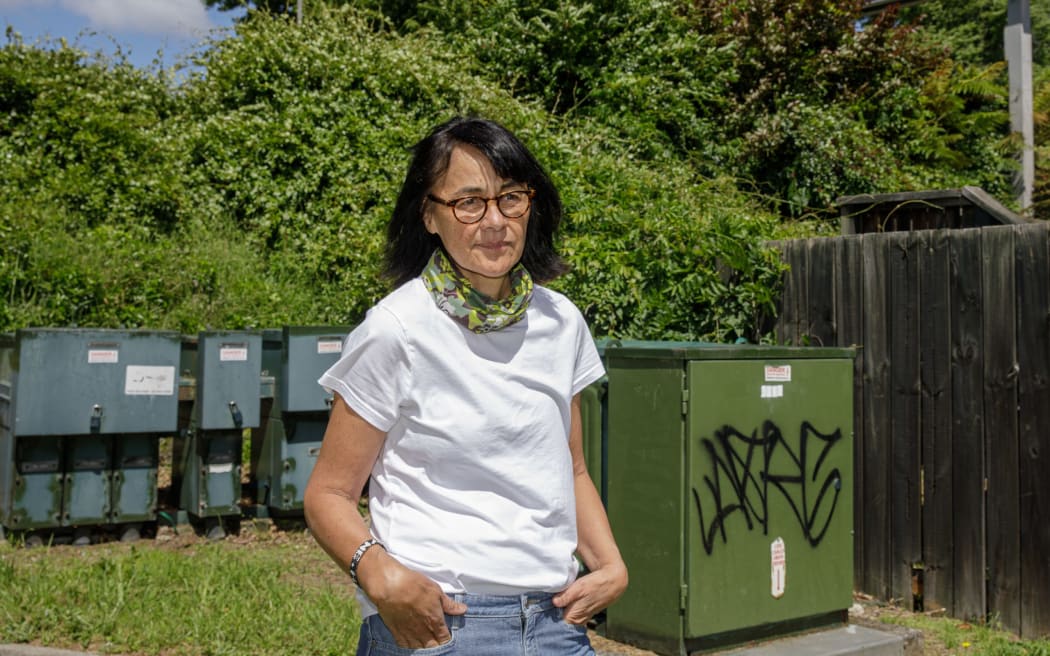
Rotorua resident Carolyne Hall just wants to see the emergency housing motels gone. Photo: Rotorua Daily Post / Mead Norton
Glenholme resident Carolyne Hall, whose home is near two emergency housing motels, said the move gave her hope, tempered with scepticism.
In her view: "We've been through so much, nobody can trust what they [the government] say. We're just learning to trust this [new] council, but these government departments, we don't trust them, to be honest, not in our town.
"It's great that Tania [Tapsell] wants to do this accord and I'm really really hoping the council can make a change to all of it but I just don't trust the ministries.
"I just really want to see [emergency housing motels] gone."
Hall said it wasn't about the people in emergency housing motels but in her view the system had been "forced" on Rotorua.
"I'm hoping our council will stand up to them but they can only do what they can do."
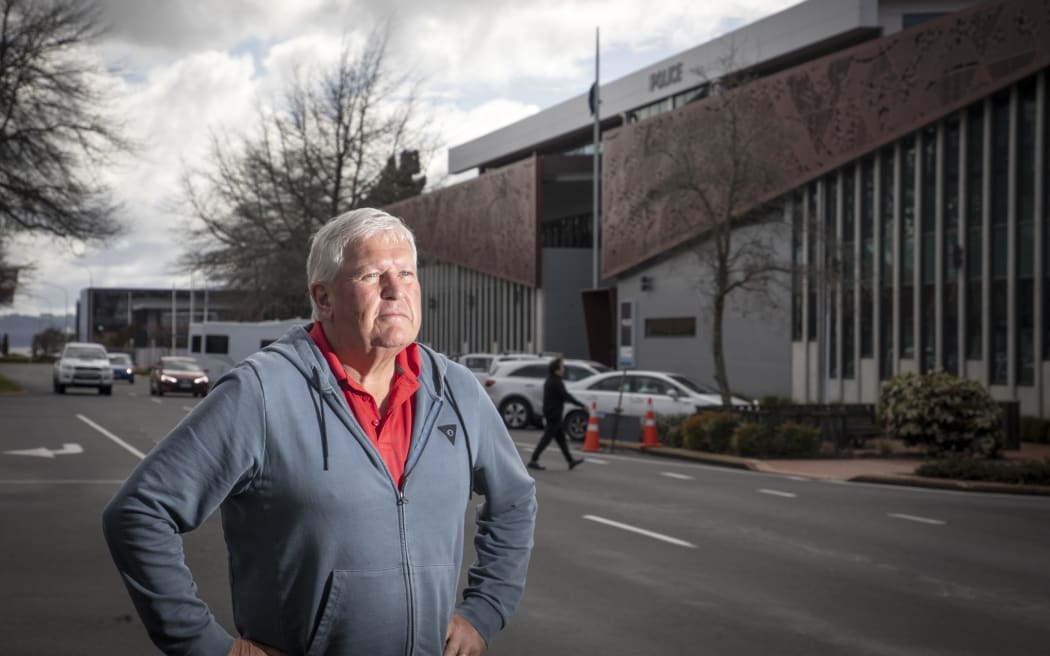
Trevor Newbrook said the council needed to get the government to commit to targets on how it would reduce and end the use of motels for emergency housing in the city. Photo: Rotorua Daily Post / Andrew Warner
Restore Rotorua chairman Trevor Newbrook said the accord sounded like it "could be really good progress".
"It does give me a little bit of hope."
However he believed the council needed to get the government to commit to targets on how it would reduce - and end - the use of emergency housing motels, how long it would take and what would happen to the people already in motels.
He also believed the government needed to exert more control over where people lived in emergency housing.
Newbrook said he agreed people should be able to live wherever they want but if taxpayer money was being used for their accommodation, some "compromises" needed to be made.
"People can move to Rotorua if they're paying their own way."
Rotorua MP Todd McClay, who has repeatedly called on the government to implement a sinking lid policy, said on Wednesday it needed to be done urgently, along with a cap on numbers.
He also believed the government needed to set a deadline within the next 12 months for motels to be returned to visitor-only use.
"[Ministry of Housing and Urban Development contracted motels] shouldn't be turned into long term or permanent housing. It's not good for people who they place in them and it's not good for Rotorua's reputation."
Housing Minister Megan Woods said the government was in discussion with the council, Te Arawa and Ngāti Whakaue around "how we develop a collective plan and provide for strengthened central and local government and iwi leadership to address the housing crisis in Rotorua".
She said this built off "significant work already underway".
"We are seeing rising building consents and a significant public housing build programme is underway. We are also investing in Māori and iwi housing."
Since December there had been a fall in the number of emergency housing special need grants from 370 to 213 at the end of October, Woods said.
That had allowed the Ministry of Social Development to reduce the number of motels it was using from 45 last November to 29 last month.
"While discussions with council, Te Arawa and Ngāti Whakaue are still underway, I am confident that we can substantially meet the mayor's objectives around motel use."
Local Democracy Reporting is Public Interest Journalism funded through NZ On Air
